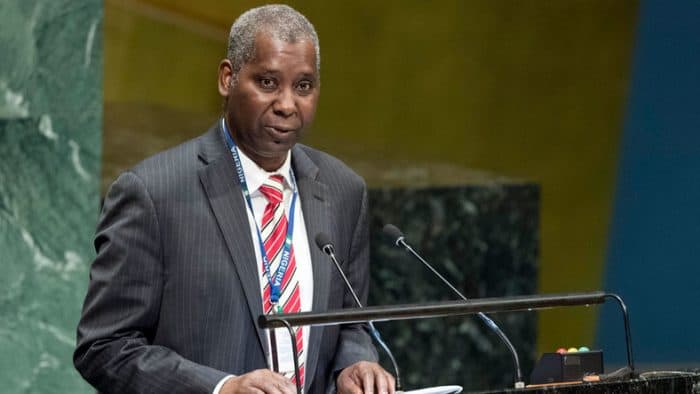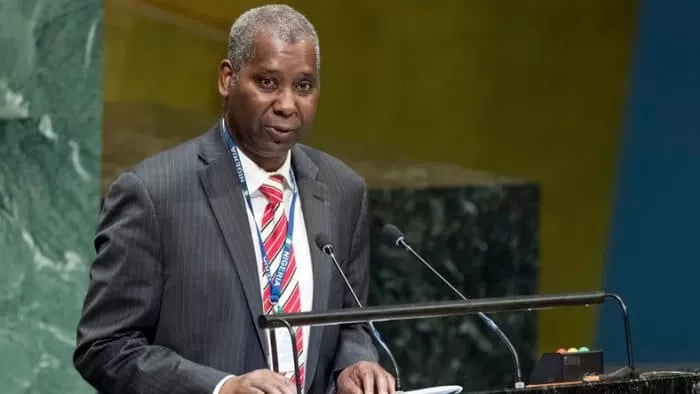

Last updated on September 11th, 2021 at 03:13 pm
Amb. Tijani Muhammad-Bande
The President of the UN General Assembly, Prof. Tijani Muhammad-Bande, has said that Africa needs to look inward to be able to overcome the negative effects of the trade war between the U.S. and China.
Muhammad-Bande gave the advice in an interview with the News Agency of Nigeria (NAN) in Abuja when he paid his first official visit to Nigeria since he was elected President of the UNGA in September.
Economists warn that the prolonged trade dispute between China and the U.S. is escalating risks to the global economy by disrupting supply chains, discouraging investment, dampening business confidence, and risking a long-term, hard-to-reverse stagnation.
Kristalina Georgieva, the Managing Director of the IMF has warned that trade tensions and resulting uncertainties could shave off 0.8 per cent of global Gross Domestic Product (GDP) by 2020.
It is against this backdrop that the UNGA president said: “Trade wars are destructive and they can unsettle economies and political systems.
“The UN of course is always on the side of having countries engage to resolve problems.
“There is still engagement between the two countries more directly concerned, but every part of the UN system; every think-tank of note in the world has cautioned against going through a trade war.
“But more specifically to Africa, I think Africa will survive like all others, whatever the situation.
“And of course to start with, the whole idea of trade, intra-African trade is looking inward”, Bande said, adding that although the trade war might have its impact on dependent countries, working towards stronger intra-African trade should help the continent survive.
“But Africa, like other countries may be impacted by a change in the pattern because it is a pattern that is changing trade, and it will have in some areas positive balance and in some areas negative, unbalanced – I am not sure what it will be.
“But certainly Africa is also working towards stronger intra-African trade, which should help it and therefore it can reduce the need to trade on some goods and services outside the African continent.
“And those elements will be qualitative elements of things that are not easily available and I think that it’s also a rational approach which will help all economies and regional economies integrate better and they are results that will be positive for countries.” Muhammad-Bande maintained.
He reiterated that although there were already negative consequences of the trade tension between the U.S. and China, they were still engaging in business.
“There has been tension but they are still selling goods and services. There is no way they can decouple, but there are elements concerning whether some would say the trade is fair or unfair, imbalances in the trading system,” he added.
Rob Walter Resigns his Position as coach for the Proteas men's team for white-ball games because personal problems needed attention.…
Starting April 2, South African drivers will get lower costs when filling their tanks as fuel prices decrease for all…
The U.S.-based driver training company Zutobi analyzed road safety worldwide and found South Africa stays last in driving danger since…
The Basketball Africa League (BAL) returns for its 2025 season with exciting changes and developments. Since 2019 the NBA-linked basketball…
The Somali president supports their military forces to eliminate the threats from Al-Shabaab, ISIS, and Al-Qaeda. The Somali National Army…
UAE President Sheikh Mohamed bin Zayed Al Nahyan held talks with President Faustin Archange Touadéra of the Central African Republic…
This website uses cookies.